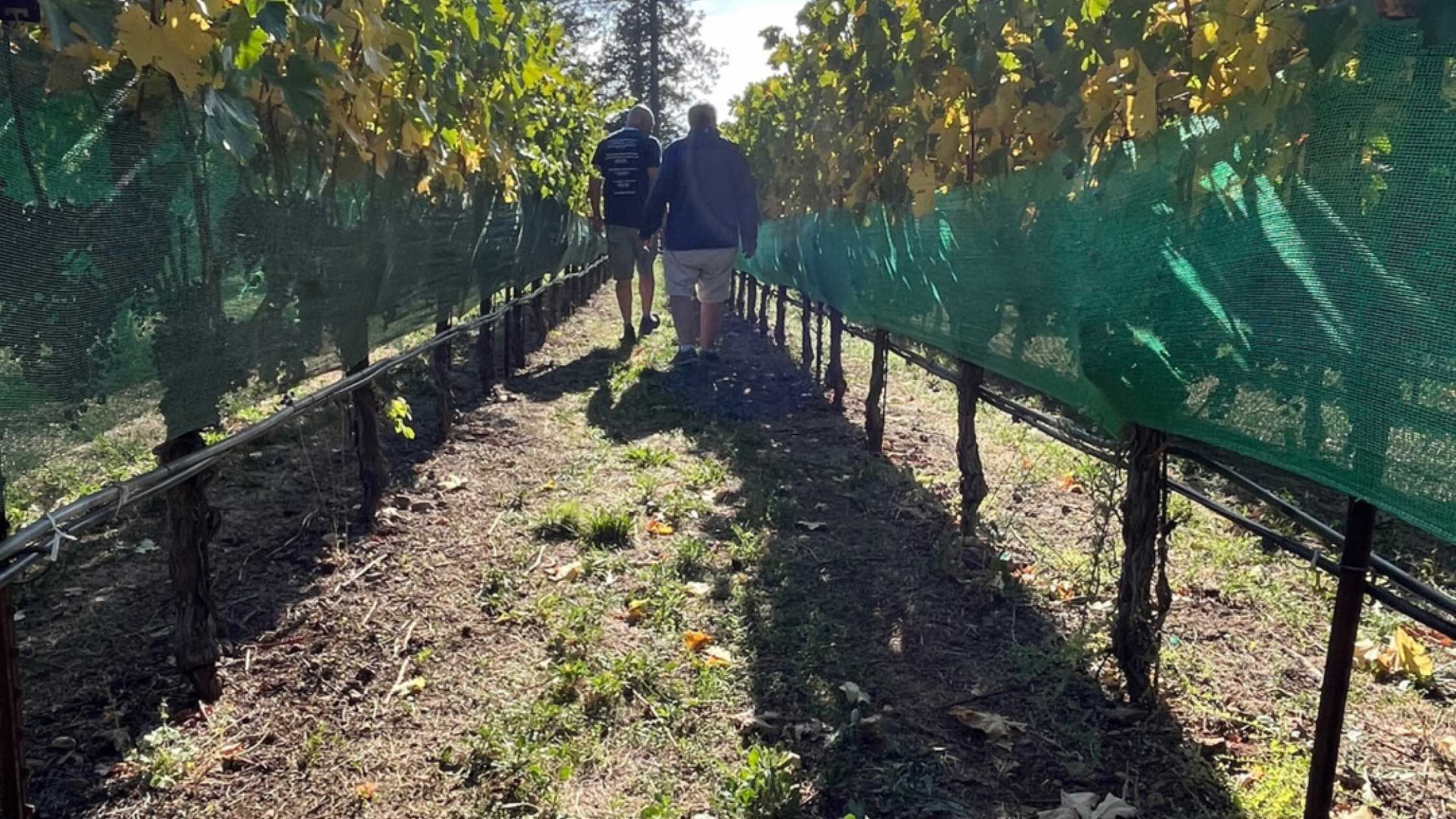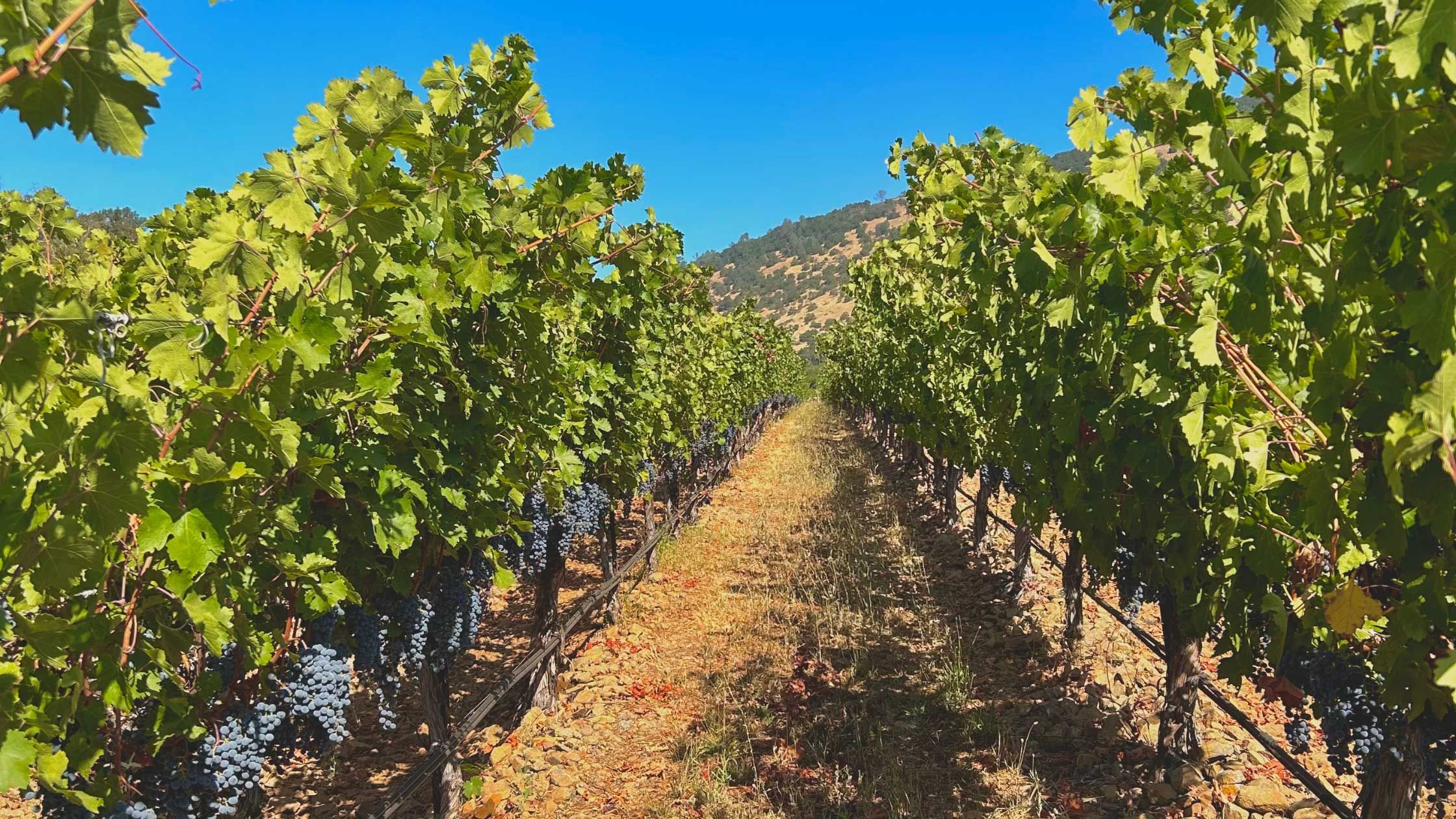Navigating the Heat: Vineyard Heat Mitigation Techniques Amidst Climate Change

March 22, 2024
In the picturesque Napa Valley, renowned for its premium vineyards and world-class wines, the impacts of climate change are more than a footnote in an environmental science journal. They are a reality that vineyard managers and winemakers, like those at Adversity Cellars, confront daily. Rising temperatures, unpredictable weather patterns, and increased instances of heatwaves are posing significant challenges to maintaining the health and productivity of grapevines. Amid these challenges, effective heat mitigation strategies, including the use of foggers, misters, sprinklers, and shade cloths have become paramount.
The Significance of Heat Mitigation
Heat stress in vineyards can lead to various physiological issues in grapevines, such as sunburn on grapes, inhibited photosynthesis, and accelerated sugar accumulation at the cost of acid retention, potentially compromising the quality of the wine. As the climate crisis intensifies, deploying effective heat mitigation techniques is not only about preserving the quality of the current harvest but also ensuring the sustainability and resilience of vineyards for future generations.
Foggers, Misters, and Sprinklers: A Closer Look
Foggers and misters play a crucial role in cooling vineyard air, increasing humidity, and ensuring that grapevines can endure the scorching summer months. Foggers disperse ultra-fine water droplets, creating a mist that covers a broad area, efficiently lowering temperatures and mimicking natural fog conditions. Misters, while similar, produce slightly larger droplets and are ideal for targeted applications, providing a precise moisture boost to the vines.
Sprinklers, on the other hand, focus on soil moisture. They are traditionally used to irrigate the vineyard, ensuring that water reaches the roots of the plants. While sprinklers are effective in maintaining soil moisture, the introduction of foggers and misters as complementary solutions helps address the aerial environment around the vines, providing a holistic approach to vineyard hydration and temperature control.

The Role of Shade Cloth
Beyond these innovative irrigation solutions, the strategic use of shade cloth has emerged as an effective method to protect vines from the harshness of direct sunlight, especially during peak radiation periods. By reducing solar exposure, shade cloths help maintain a more stable microclimate around the vines, mitigating the risk of sunburn on grapes and supporting balanced grape maturation.
Combating Climate Change
The adoption of these heat mitigation strategies is a testament to the wine industry's adaptability and commitment to sustainability. By actively managing vineyard microclimates, we not only safeguard this season's harvest but also contribute to the larger fight against climate change. These practices underscore the importance of innovation and stewardship in ensuring the long-term viability of wine production in regions like Napa Valley.
The Journey Ahead
At Adversity Cellars, the fusion of art, science, and nature in winemaking takes on a new dimension as we navigate the challenges posed by a changing climate. Our dedication to excellence is reflected not just in the wines we produce but, in our commitment to preserving the delicate balance of the ecosystems that support our vineyards. As we continue to explore and implement heat mitigation strategies, we invite our community and fellow wine enthusiasts to join us in this crucial endeavor. Together, we can turn adversity into opportunity, crafting exceptional wines that are a testament to resilience, innovation, and the enduring spirit of Napa Valley.

As the climate narrative unfolds, Adversity Cellars remains at the forefront, embracing adaptive strategies that ensure our wines continue to tell a story of excellence forged in the face of adversity.